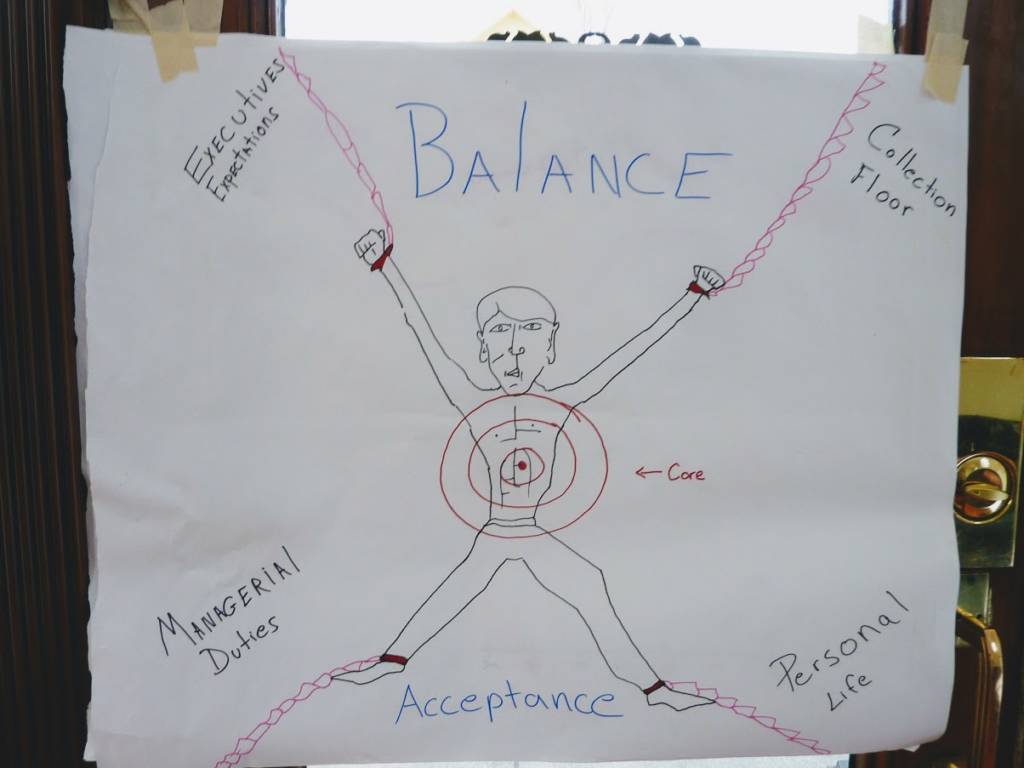
A smart manager sent me the following question:
Question from manager
I’m struggling with it on a few fronts:
- As a business owner, sometimes I feel like I have to demonstrate decisiveness (“this is how it’s gonna be, and there’s no debate”);
- As a coach with the goal of “winning,” I feel like I have to present the right depth of strategy/vision without overprescribing the path to get there, which provides an opening for other staff to take ownership and bring their energy to the effort (this is my preferred space);
- I’m concerned that excessive “me telling people what to do” silences collaboration and reduces trust;
- I’m concerned that “not telling people what to do” is interpreted by some as “being indecisive,” “having useless meetings,” etc.;
- I have an extremely negative reaction when I’m on the receiving end of “being told what to do” ;
My response to the manager
This is a tough one — and I hate to say — It depends.
- You are a smart, quick-thinking connector who has spent much of his adult life looking for patterns and figuring shit out.
- You are rather reflective and a little over-critical of yourself (which is what helps with the patterns and figuring shit out)
- Others see this in you — and there are some areas where they want you to tell them what to do – so they can move (perhaps the cognitive load thing)
- Currently, you are dealing with a management constraint – so you are integrating the many-systems and pulling the company into something that you cannot quite articulate yet.
BEING DECISIVE – just some thoughts
- How much of this “telling people what to do” comes from you listening to team members and synthesizing the info into some coherent response and action?
- Be selective in what you are decisive about, and be consistent.
- Some things have no time, and you need to decide.
- Some things the other person has to think and mess up
- Perhaps, when being decisive, say to the person – please do it this way for now, and when we (or you) have a different idea of how we can still achieve the outcome or goal, let’s talk; I really need to hear some other perspective. And for now, do it this way – and we will talk about some alternative options (give them a date and time)
- Having some boundaries and standards that are non-negotiables and are important to your organization as a whole is important (don’t berate and yell at people)
COACHING – just some thoughts
- You are listening for how the person responds and their thinking (you do this so you can better figure out where that decisive boundary is)
- Coaching works when you have time, energy, and someone who is coachable
- Coaching works – until it doesn’t
- With coaching – you can only move as fast as the person you are with. You need to be patient AND have shorter check-in and ‘what did you learn?’ discussions.
I wrote this a while ago – 4 Reasons to not share your goals.
And coaching question – I would ask you if we were meeting face 2 face:
- When you are being decisive, what do you notice that is helpful or beneficial to the situation?
- When you are coaching, what do you notice that is helpful or beneficial to the situation?
- What is different in each of these situations? What else? What else?
- Where does being decisive work best for you? Where does coaching work best for you?
- Who notices the difference in your approach first? What do they notice?
- How or what will you see when you can achieve the hopes (goals) you want?
- Where is that already happening? How can you do more of that?
- What have you learned about yourself from being overly decisive? What have you learned about yourself from being excessively coachy?

